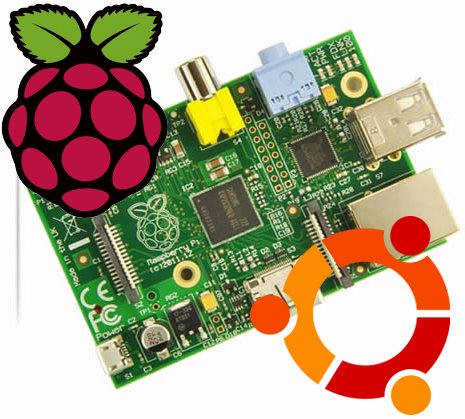Since the Raspberry Pi was launched many people have asked, and still ask, if/when Ubuntu will be available for the Raspberry Pi. As Canonical decided to only provide support for ARMv7 and higher architecture, for optimal performance and user experience on recent hardware, and Raspberry Pi is powered by Broadcom BCM2835 processor based on ARMv6 architecture, this did not happen, and instead a version of Debian called Raspbian became popular, and is still the main OS used by most people. But a team of developers in the UK has recently decided to give it a try and launched a flexible Indiegogo campaign in order to purchase enough Raspberry Pi boards and required accessories (power supplies, SD cards, cables…) to setup a build farm for Ubuntu 12.04 LTS, Ubuntu 13.10, and Ubuntu 14.04.
 They plan to acquire at least 32 Raspberry Pi boards for their build farm. But don’t get too excited, especially if you plan to run Ubuntu desktop on the Raspberry Pi, as the project focuses on running Ubuntu server, or something similar that boots to the command line. Running the desktop version of Ubuntu would be a bonus for the project. One the problem with using a Raspberry Pi to build package is the limited RAM, which means some of the larger packages, such as webkit, are likely to fail during linking, the last part of building of package. One way they plan to work around the memory issue is using swap on a SSD. It may work but this is likely to take a while, something like maybe a week or two for linking these larger packages.
They plan to acquire at least 32 Raspberry Pi boards for their build farm. But don’t get too excited, especially if you plan to run Ubuntu desktop on the Raspberry Pi, as the project focuses on running Ubuntu server, or something similar that boots to the command line. Running the desktop version of Ubuntu would be a bonus for the project. One the problem with using a Raspberry Pi to build package is the limited RAM, which means some of the larger packages, such as webkit, are likely to fail during linking, the last part of building of package. One way they plan to work around the memory issue is using swap on a SSD. It may work but this is likely to take a while, something like maybe a week or two for linking these larger packages.
Another concern is the philosophy about packages that fail to build. According to their FAQ:
What happens about packages that fail to build?
Depends why, if they fail to build due to lack of ram or disk space on a buildd then we can set up a beefier build with maybe an attached SSD and lots of swap, it might be slow but it should get there. If they fail to build because the code won’t compile then we will probably just report a bug and leave it. We don’t promise to build every single package.
It’s understandable a small team may not have the time to fix all issues related to moving to ARMv6 architecture. Nevertheless that’s not a good sign for the success of the project. Whether they spent more time fixing broken packages also depends on the funding they get. I’m also not sure where they’d report the bug, since Canonical would just ignore it.
Despite these caveats and the fact that it’s a flexible campaign, the project is likely to be funded at the target is a low 2,500 GBP (about $4,000). The best way to contribute is probably to pledge for a 8GB (or greater) SD card preloaded with “Ubuntu-Pi” for 25 GBP (~$40) in the UK, and 35 GBP (~$56) for the rest of the world that should be shipped in April 2014. That’s pretty expensive for an SD card, but it’s for a good cause. Since we’ve all recently learned Ubuntu is getting serious about its trademark, they won’t be able to call it Ubuntu, so instead they’ll come with a name, or if you have cash to spare, you can pledge 1,000 GBP ($1,600) and choose the name yourself.

Jean-Luc started CNX Software in 2010 as a part-time endeavor, before quitting his job as a software engineering manager, and starting to write daily news, and reviews full time later in 2011.
Support CNX Software! Donate via cryptocurrencies, become a Patron on Patreon, or purchase goods on Amazon or Aliexpress




